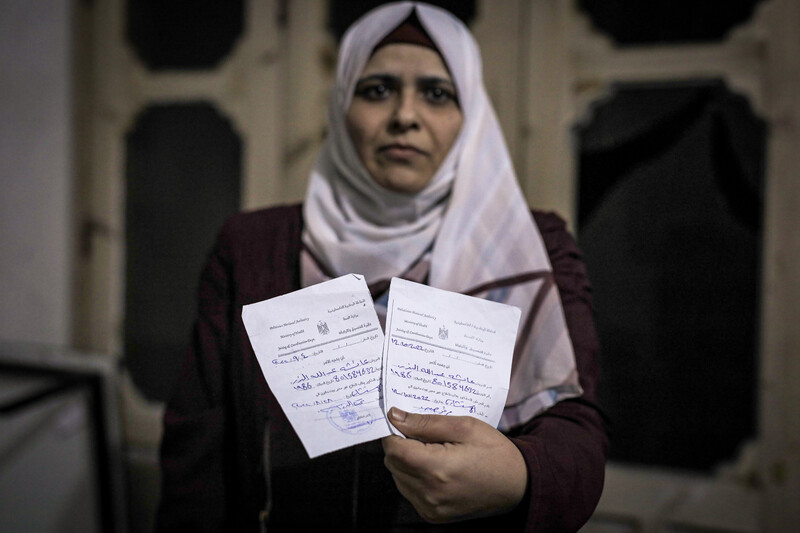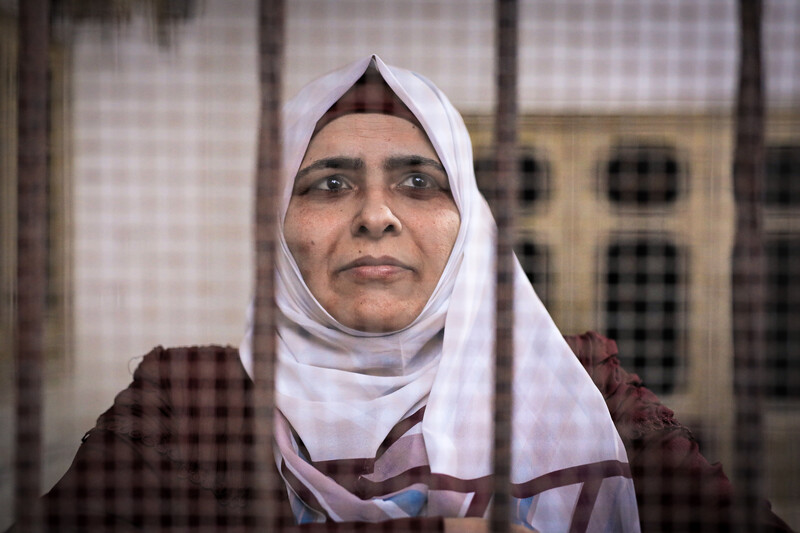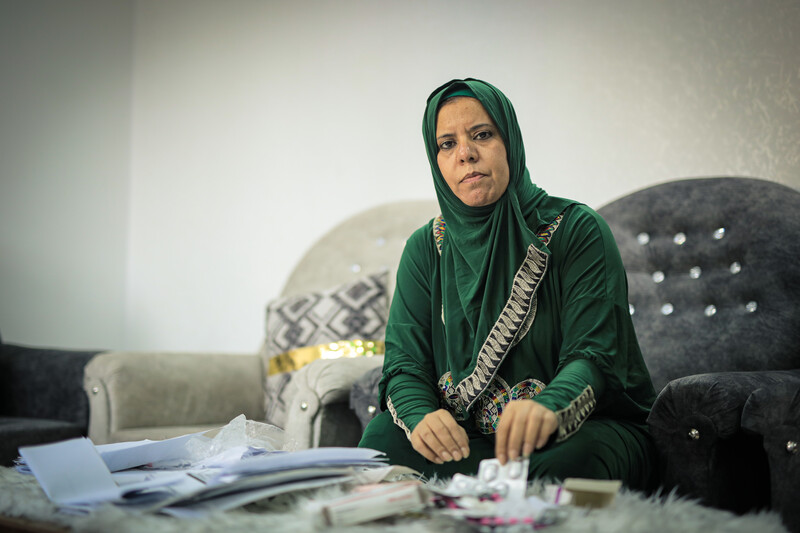The Electronic Intifada 26 May 2023

Patients requiring treatment outside Gaza frequently miss hospital appointments because Israel refuses to grant them travel permits.
The life of Najla Irjilat may be in Israel’s hands.
In June 2022, she was diagnosed with breast cancer.
On the recommendation of her doctors, she had an operation in Gaza to remove a malignant tumor last September.
She had chemotherapy following that surgery and was then advised that she should undergo radiation sessions.
There was a major problem in arranging such sessions: The required equipment is not available within Gaza.
So Najla was referred to Augusta Victoria Hospital in occupied East Jerusalem.
The hospital gave her an appointment for 3 May this year. The appointment was missed.
The Israeli authorities did not reply to her request for a travel permit. Her sister Yasmin sought approval to accompany her yet the Israeli authorities rejected her sister’s application.
With help from Al Mezan, a Gaza-based human rights group, Najla made another request to travel for an appointment on 7 May (the rescheduled date). The only reply she received was that her request and a fresh request by her sister to accompany her were “under review.”
“Once again, I wasn’t able to travel for treatment,” Najla, a 45-year-old mother of six, said.
She has now submitted a third request. While the Palestinian Authority has agreed to cover the costs of her treatment, she has not yet received a response from Israel.
“Radiation is crucial to prevent the cancer coming back,” she said. “Any delay puts my life at significant risk.”
“Waiting for death”
The plight of Gaza’s medical patients made international headlines a few weeks ago.
As Israel conducted a large-scale attack on Gaza earlier this month, the BBC and other news outlets reported that hundreds of people – mostly with cancer – were blocked from traveling for urgent treatment.
The headlines briefly drew attention to the deadly consequences of the movement restrictions Israel places on Palestinians. Such restrictions also occur when Israel is not subjecting Gaza to continuous airstrikes.
Most instances in which Israel prevents patients from keeping appointments go unreported in the press.

Aisha al-Nader was diagnosed with two types of cancer last year.
Aisha al-Nader was diagnosed with breast cancer and lymphoma in April 2022.
The diagnosis came soon after Aisha – now aged 41 – learned that her efforts to become pregnant via fertility treatment had been unsuccessful.
“All I ever wanted was to experience the joy of being a mother,” she said. “Everything changed in the blink of an eye. Now it feels like I am waiting for death.”
Gaza-based doctors referred Aisha to Istishari Arab Hospital in the West Bank city of Ramallah.
But she was unable to keep an appointment set for July last year: Israel would not issue her a travel permit.
Her brother Hussein sought help from human rights groups.
A series of subsequent applications were made and a lawsuit was initiated. Israel still would not budge.
In January this year, doctors confirmed that Aisha’s cancer had spread. Further tests were deemed necessary to ascertain the full extent of the cancer yet the required equipment was not available in Gaza.
She was given a fresh appointment in Ramallah for late February, but Israel refused to issue a travel permit.
“My sister is slowly dying because of the blockade on Gaza,” said Hussein. “And the arbitrary decisions of the Israeli authorities.”
“Barely surviving”
A new study by the World Health Organization (WHO) notes that there has been a considerable variation in approval rates following applications for travel permits for Gaza’s patients over the past 15 years. The highest approval rate (94 percent) was recorded in 2012, the lowest (54 percent) in 2017.
From 2019 to 2021, just 65 percent of travel permits were issued in time for patients from Gaza to keep hospital appointments, the WHO study states.

Saadia al-Barim is extremely worried about the future of her children.
In April 2021, doctors decided that Saadia al-Barim needed treatment outside Gaza for thyroid cancer. She was referred to al-Ahli Hospital in the West Bank city of Hebron.
Israel turned down four of her applications for travel permits before eventually granting her one.
The permit did not ensure a smooth journey. When she arrived at Erez, the military checkpoint separating Gaza and Israel, she was interrogated by Israeli soldiers for six hours.
“During that time, I felt like I was going to stop breathing,” the 51-year-old said.
Her condition worsened in 2022. After being referred for further treatment in Hebron, she received a travel permit last June.
She needs further treatment and has recently been referred to al-Makassed hospital in East Jerusalem.
So far this year, she has applied for three travel permits. All three have been denied.
“I am barely surviving,” she said.
A widowed mother of six, Saadia is extremely worried about her children’s future.
“Saleh, my youngest son is 12,” she said. “He is afraid of losing me, just like he lost his father when he was very young.”
Aseel Mousa is a journalist based in Gaza.





